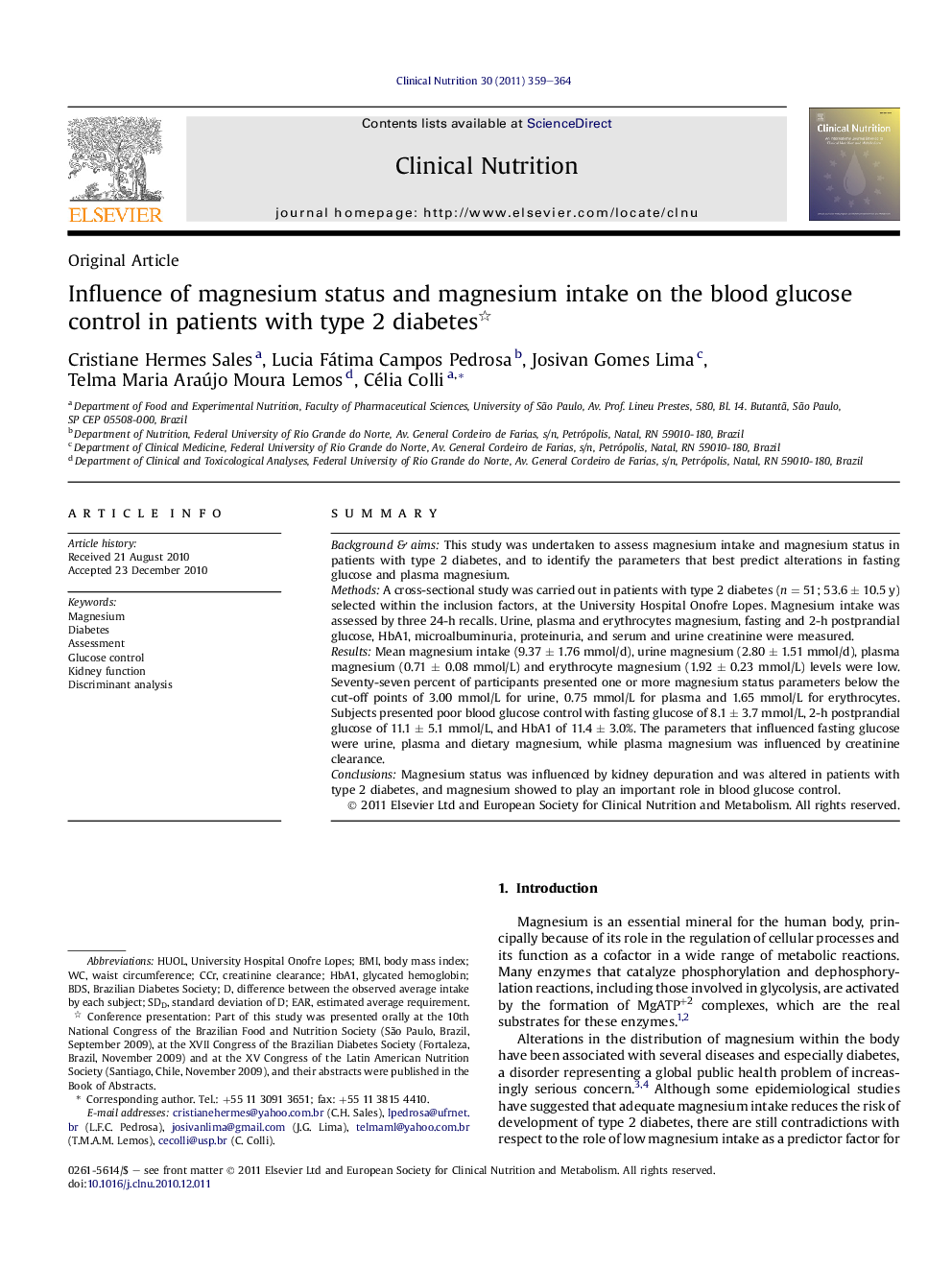| Article ID | Journal | Published Year | Pages | File Type |
|---|---|---|---|---|
| 2689830 | Clinical Nutrition | 2011 | 6 Pages |
SummaryBackground & aimsThis study was undertaken to assess magnesium intake and magnesium status in patients with type 2 diabetes, and to identify the parameters that best predict alterations in fasting glucose and plasma magnesium.MethodsA cross-sectional study was carried out in patients with type 2 diabetes (n = 51; 53.6 ± 10.5 y) selected within the inclusion factors, at the University Hospital Onofre Lopes. Magnesium intake was assessed by three 24-h recalls. Urine, plasma and erythrocytes magnesium, fasting and 2-h postprandial glucose, HbA1, microalbuminuria, proteinuria, and serum and urine creatinine were measured.ResultsMean magnesium intake (9.37 ± 1.76 mmol/d), urine magnesium (2.80 ± 1.51 mmol/d), plasma magnesium (0.71 ± 0.08 mmol/L) and erythrocyte magnesium (1.92 ± 0.23 mmol/L) levels were low. Seventy-seven percent of participants presented one or more magnesium status parameters below the cut-off points of 3.00 mmol/L for urine, 0.75 mmol/L for plasma and 1.65 mmol/L for erythrocytes. Subjects presented poor blood glucose control with fasting glucose of 8.1 ± 3.7 mmol/L, 2-h postprandial glucose of 11.1 ± 5.1 mmol/L, and HbA1 of 11.4 ± 3.0%. The parameters that influenced fasting glucose were urine, plasma and dietary magnesium, while plasma magnesium was influenced by creatinine clearance.ConclusionsMagnesium status was influenced by kidney depuration and was altered in patients with type 2 diabetes, and magnesium showed to play an important role in blood glucose control.
